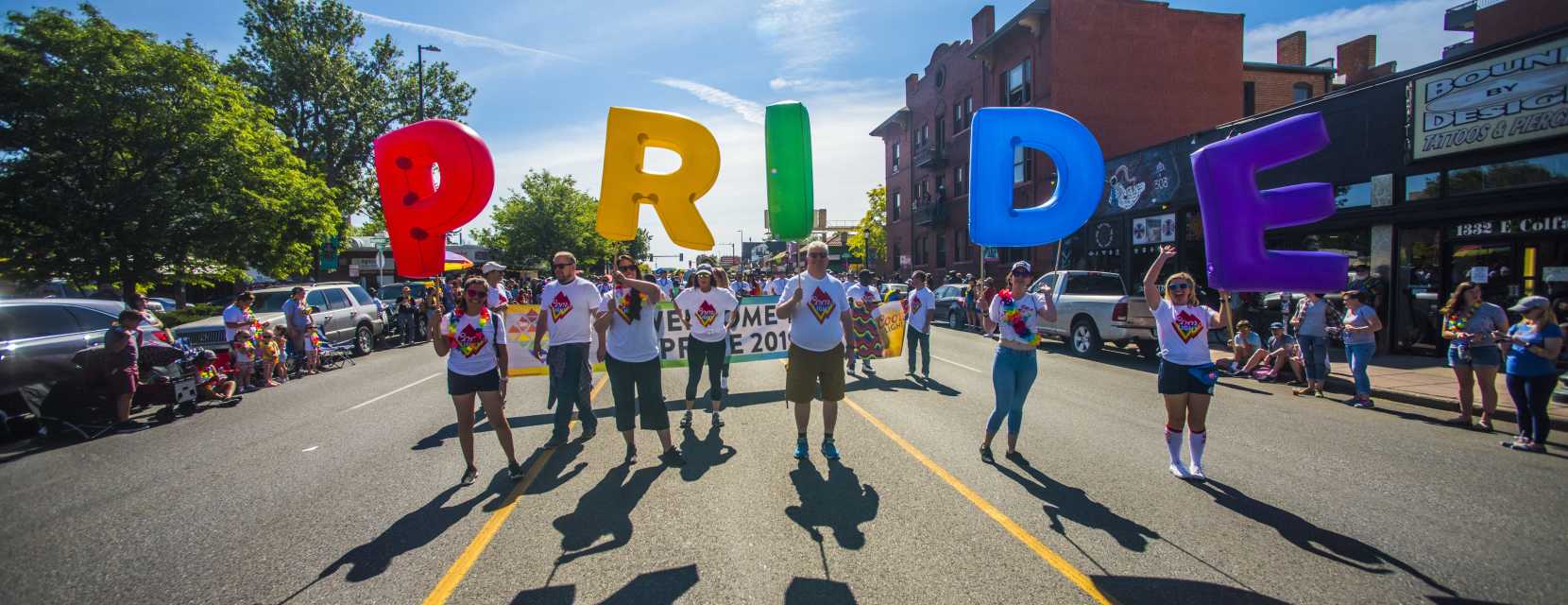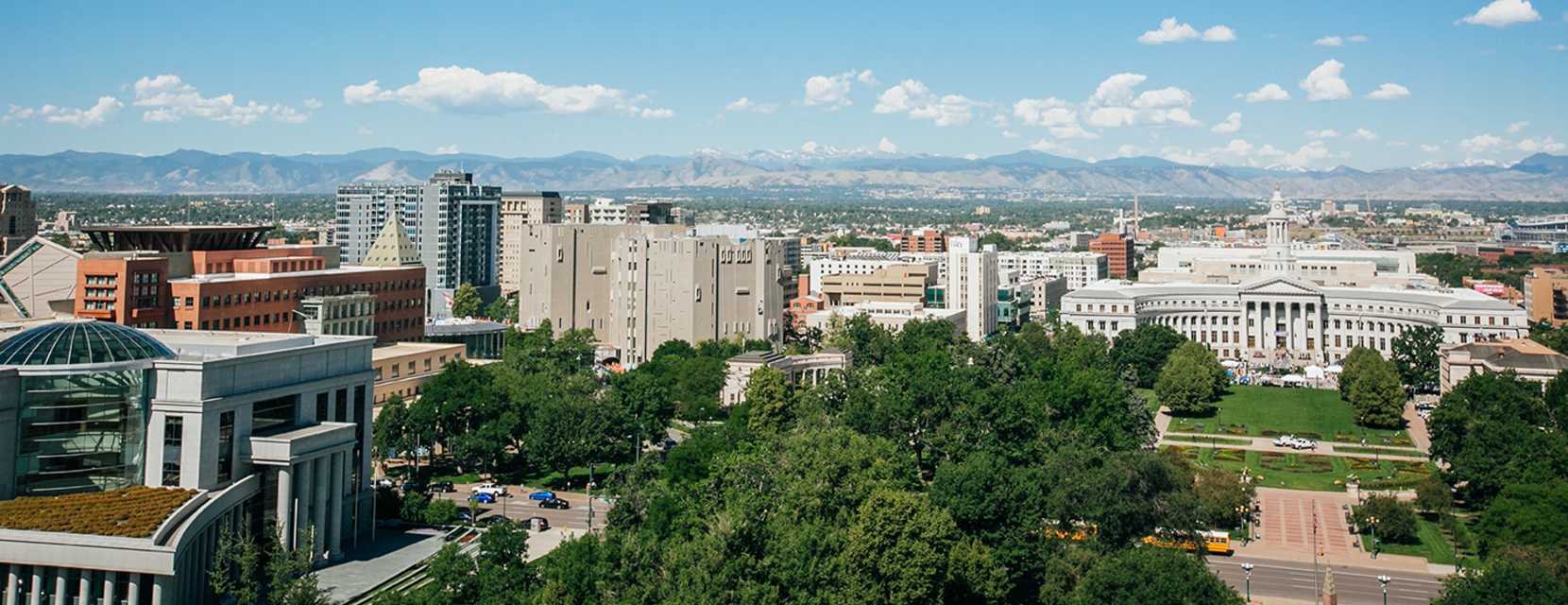Go ahead, smile at the notion that the boundaries for Denver’s proposed Lavender Hill Cultural District are a wee bit fluid. After all, the ever-inclusive LGBTQ+ term is nothing if not expansive, so it's only fitting that the district spans several neighborhoods.
While the perimeter of the nascent cultural district includes the well-traveled routes of the Lincoln and Broadway corridors, a nice strip of storied Colfax Avenue as well as the Capitol Hill, North Capitol Hill, Cheeseman Park, Congress Park, Baker and Five Points neighborhoods, the district-in-the-making is also ringed by what district instigator Zach Kotel calls “zones of influence.”
“We've been deliberately saying that we have blurry boundaries,” says Kotel. “So those are areas where there was a historic presence of the queer community, but maybe not as much now. For example, if you walk around downtown, it doesn't feel as queer, but there are opportunities for history marking and storytelling in those places.”
In 2022, Kotel, a graphic designer by trade, gathered a group of LGBTQ+ stakeholders to begin envisioning and advocating for a new cultural district that speaks to the city’s longtime queer presence. Among the area’s early champions: Rex Fuller of the Center on Colfax (the host of Denver PrideFest, which is celebrating its 50th anniversary in 2024); Tara Jae, executive director of Youth Seen and co-founder of Black Pride Colorado; and the Colfax Ave Business Improvement District. The stated mission for Lavender Hill is simple: “To create an engaging place that celebrates the Queer community, honors its contributions to our city, and serves as a vital resource for all area residents and businesses.”
Kotel would be the first to say that a city having a queer-identified neighborhood is not an original idea. After all, there’s San Francisco’s Castro, Los Angeles’s West Hollywood, New York's West Village and Park Slope neighborhoods, and Chicago’s Boystown (recently renamed Northalsted). But only the Castro and Northalsted have been officially recognized by their cities for their queer identity and contributions to their municipalities. The Lavender Hill organization is working to add Denver to that too-short list.
If you take to the roadways that ring Lavender Hill, you’ll learn that the district encompasses or is adjacent to some of the best Denver has to offer. Period. So, in addition to queer bars like Charlie's Denver, Blush & Blu (one of the nation’s last lesbian-centered boîtes), there are cultural institutions like Denver Art Museum, History Colorado Center and the Clyfford Still Museum. Restaurants abound, among them the unassuming but James Beard-acknowledged La Diabla Pozole y Mezcal restaurant. It also has a Michelin Bib Gourmand shout-out for great food, modestly priced.
Why Denver?
“I feel like the pieces were lying on the ground, and someone just had to put them together,” Kotel says, over a cup of coffee at the café near his and his fiancé’s apartment in Capitol Hill. “And that's kind of what I've been trying to do. But it’s been awesome because that's happened so easily and so quickly because people are so receptive to this idea. It's just been very affirming to do something for the community and have the community want it.”
Local's Tip: Cool Spots You Won't Want to Miss
Having returned to his hometown after college, Kotel, 34, has become a savvy booster of the city and its offerings.
“I'm a foodie, so I would definitely put some good restaurants on the itinerary. I love Safta and Brasserie Brixton, and Somebody People is great for vegetarians.”
Other places he’s keen for visitors to know about:
Neighborhoods: Highland, RiNo or the Tennyson Street Cultural District in Berkeley.
Outdoors: City Park Jazz during the summer; Red Rocks Amphitheatre, everyone’s go-to outdoor concert venue; Denver Botanic Gardens ("…definitely somewhere I would take people”).
Cocktails and nightlife: Stick to Colfax with stops to the Tight End Bar or X Bar. Or venture to the Globeville neighborhood’s welcoming Fort Greene bar.
—Zach Kotel
As gayborhoods go, Lavender Hill is not as concentrated as San Francisco’s Castro or the New York’s West Village or Chicago’s Northalsted neighborhoods. And let’s be honest, gentrification is changing who lives in those areas, too. Even so, with history comes acknowledgment and a measure of civic security. Lavender Hill nods to that past but also centers the city’s longstanding gayborhood, Capitol Hill, which is home to Cheeseman Park, as well as the King Soopers market on the corner of Downing and 9th Avenue, which long ago picked up the moniker “Queen Soopers.” Around the corner, was the now-shuttered but memorable gay-owned, go-to video store, Videotique.
Kotel sees queer-owned businesses as a vital way to maintain the character of a neighborhood even as LGBTQ+ citizens have more leeway in where we want to live.
“The traditional gay neighborhood has kind of gotten watered down,” he says. “So having that sort of area where you can go and feel that sense of queerness and have a sense of place that’s focused on that community, that's a goal. So, increasing the business presence, having stuff like that, directs people to that area for that reason.”
When Kotel, a Denver native, talks about the possibilities for the district there’s a hint of the activist in his vision. His grandmother Lyn Ellman would approve. She was an early ally, organizing one of the first AIDS marches in Florida, Kotel recounts.
“When we were growing up, she'd always be like, ‘Do you read the news?’ And if you said no, she would read you the riot act. It was not an acceptable answer. And my parents are both from New York City, so they grew up with activism being more common in their lives. And then I'm Jewish and was raised with tikkun olam as a primary value, which means 'make the world a better place.'”
In addition to being the lead on Lavender Hill’s non-profit organization (keep tabs on them via @lavenderhilldenver on Instagram), Kotel heads up the Denver chapter of the Society of Experiential Graphic Design and works remotely for Baltimore’s Ashton Design. The Maryland firm is doing the branding for the nascent district pro bono.
“I'm proud to see that,” says Kotel. “I’ve only worked there for a year so that they were willing to be bullied into doing a free project and one that is super values-based, has been awesome.”





